Chinglish Again, with an Explanation
originally posted
September 09, 2009
I love seeing signs like this one, which
I found at the top of the stairs at a Japanese restaurant downtown.
Unfortunately, the staff saw me take the picture, and asked why I was
interested. So this sign will probably be replaced.
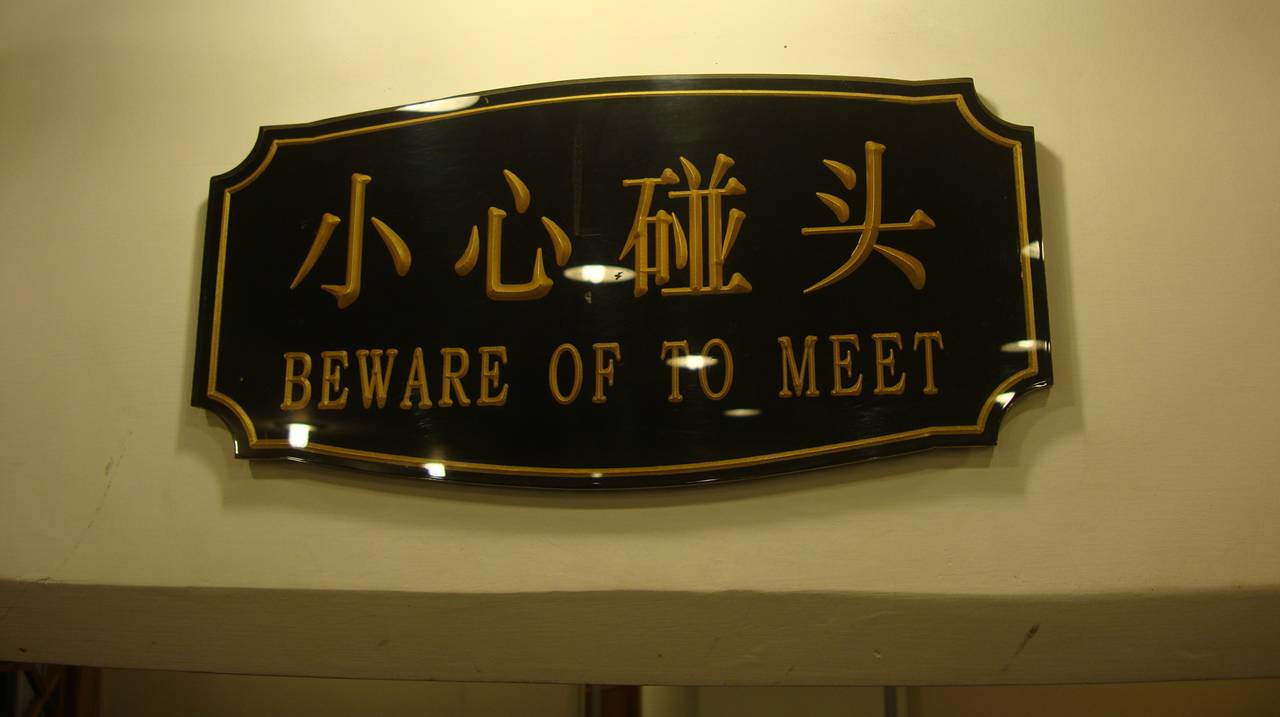
The first two Chinese characters read 小心
xiǎo xīn (literally "small heart" but meaning be careful) so I can see
where the "beware" came from. The second two, 碰头 pèng tóu, were a
mystery until I consulted my dictionary and found that together they
have three meanings - ①see each other ②meet and discuss; put heads
together ③hit one's head accidentally. Obviously the sign's
translator just chose the second definition when he should have read on
to the third.
Thinking about what we would put on the sign, it too
sounds like Chinglish. How on earth can one "watch your head".
When I see a sign like this one, I know that it isn't
alone. It's one of thousands in a production run. So even if
this one disappears, there are others in restaurants all over China.
Someday they will be priceless collector's items, a reminder of a
less sophisticated but much more charming time.
originally posted May 3, 2009

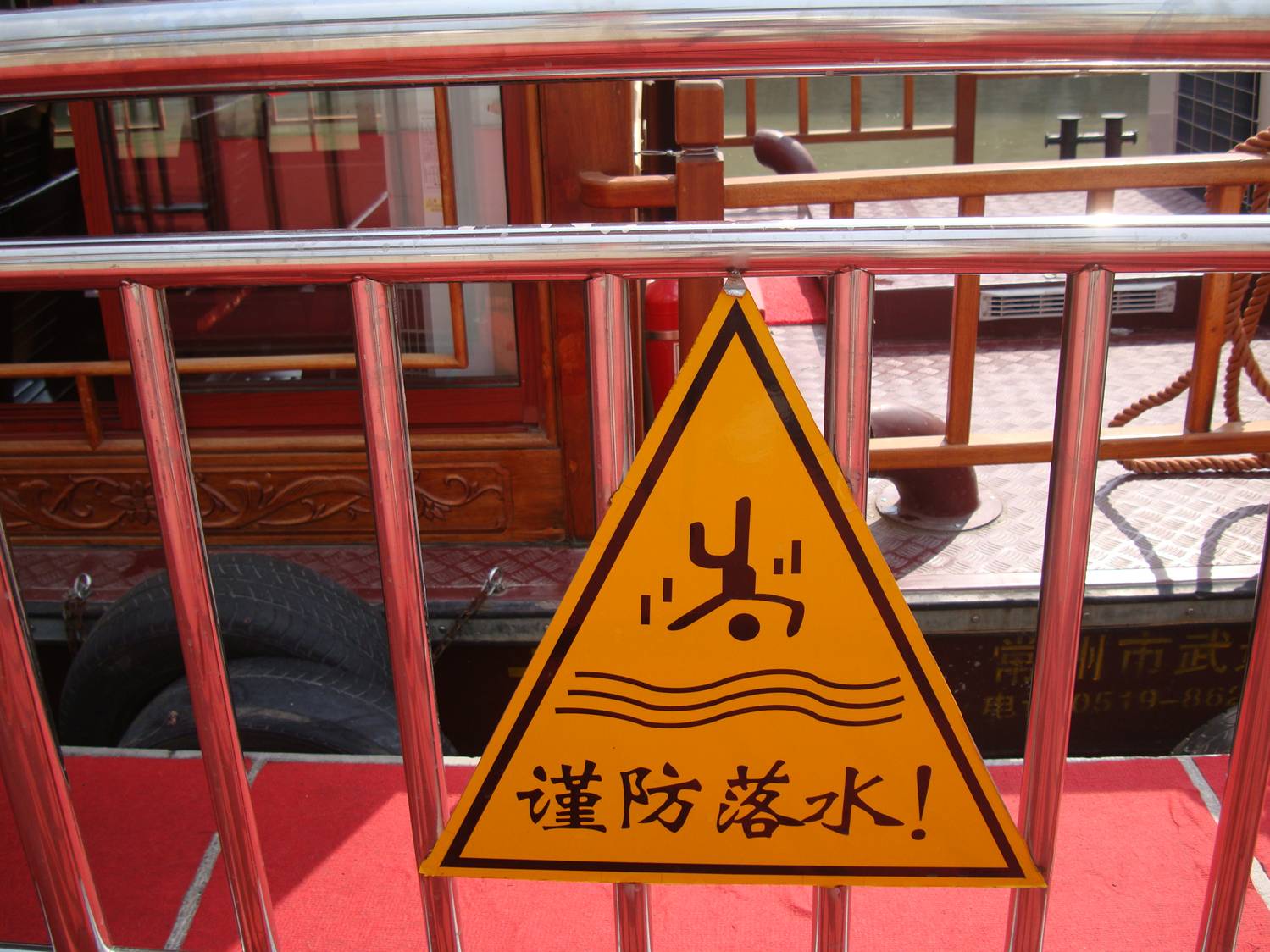
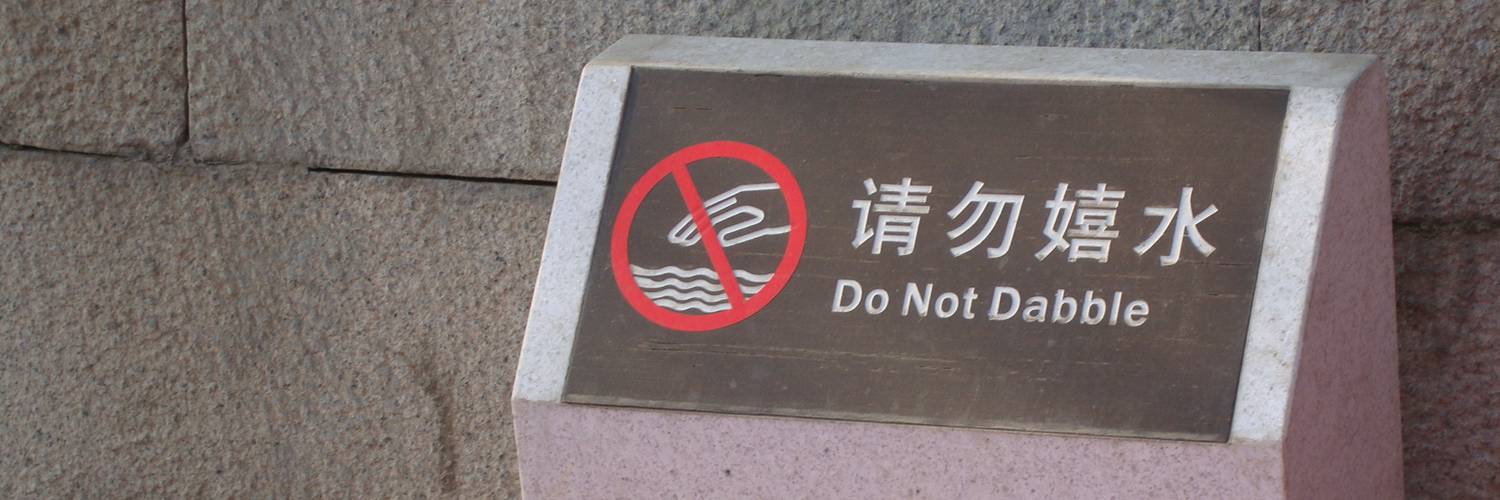
Brand New Bund, Brand
New Chinglish
originally posted
April 14, 2010
They are dressing up Shanghai
for Expo 2010, which opens in less than a month now. Part of the
beautification has been done on the famous Bund, the walk along the
river. It's been widened, and simplified to make a long pedestrian
walkway.
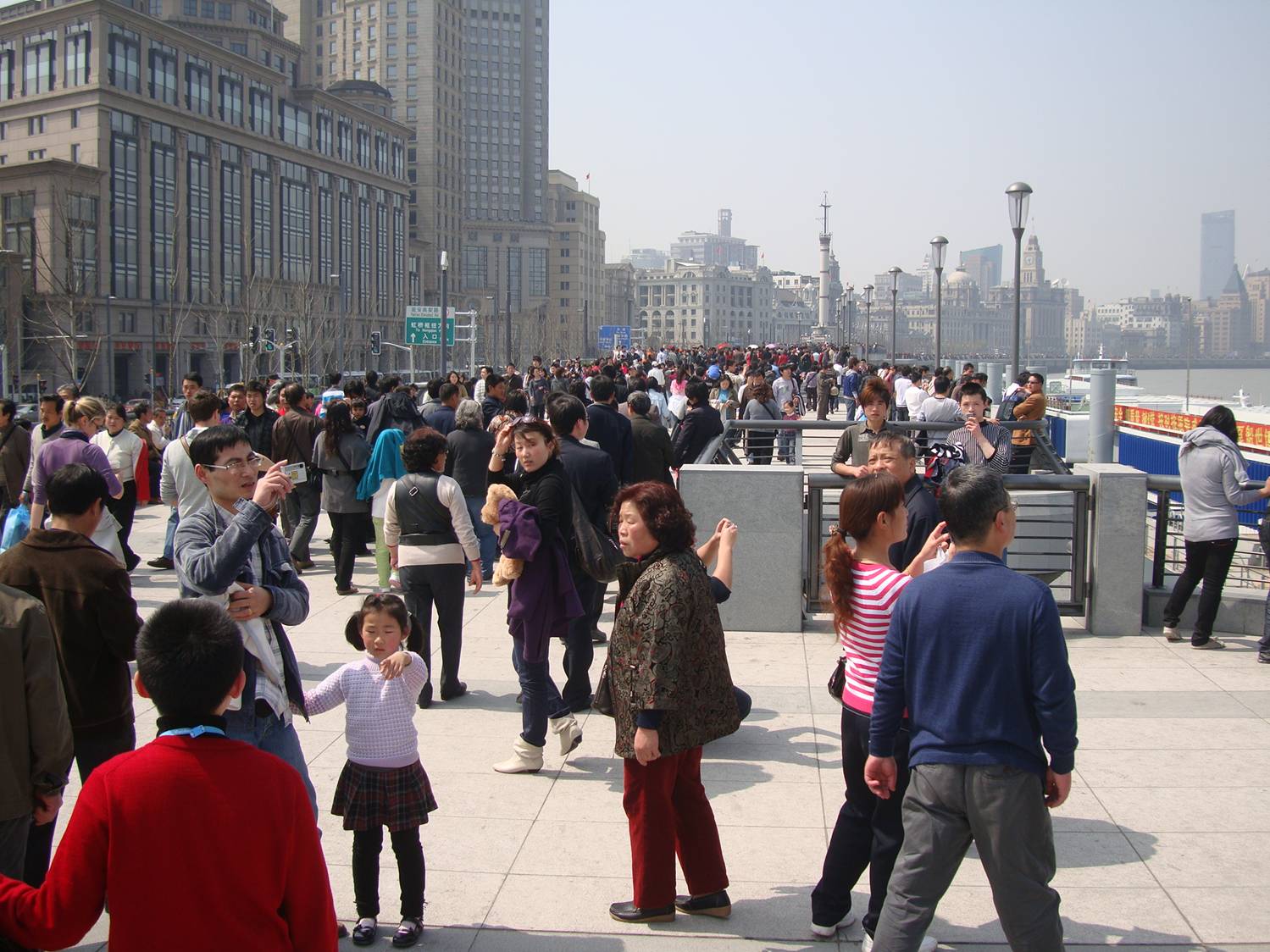
And below is the sign
directing tourists to the toilets.
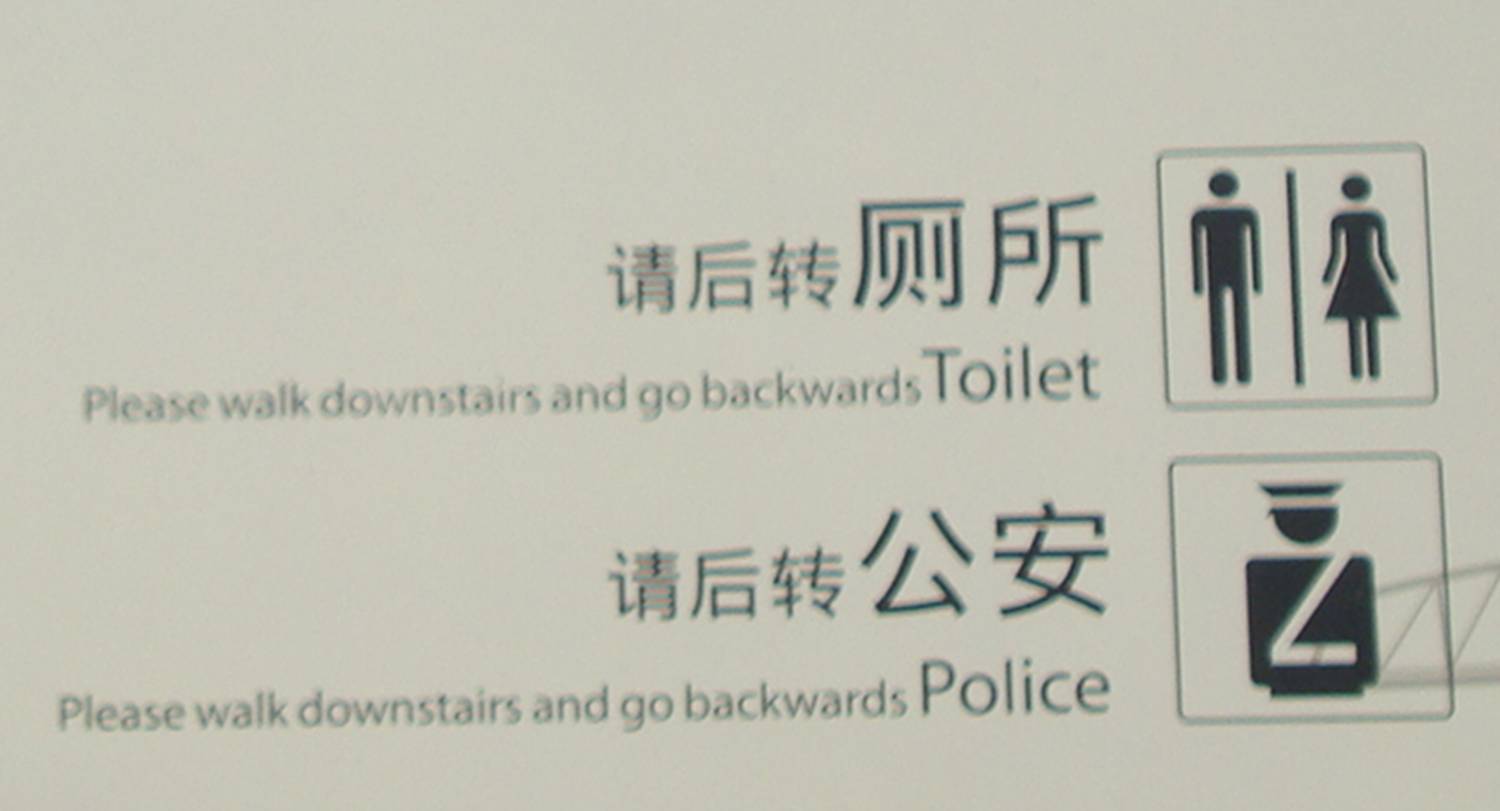
Amazing to me that, with all
the native speakers in China now, they don't verify that a sign is
correct BEFORE they pay to have it made, but I hope they never catch on.
I love the Chinglish. It's one of the most entertaining aspects of
China.
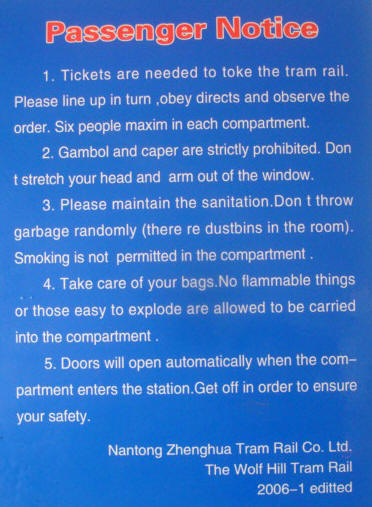
I'm
posting this large enough for you to read, because I
think it's worth it. Will the joys of Chinglish ever wear
thin?
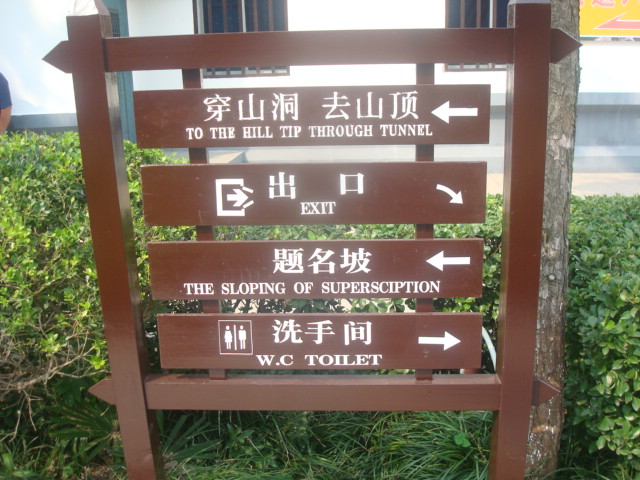
We never did
discover what we'd find at "the sloping of superscription"
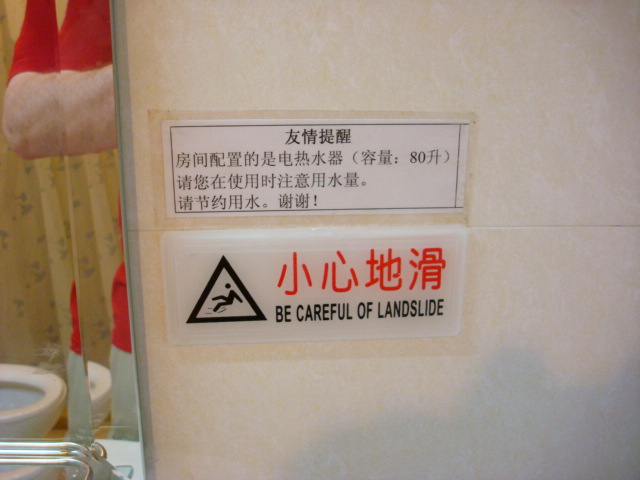
I can see how this
kind of thing can happen. In Chinese, one of the
meanings of 地 (dì - earth, land, soil) is
"earth", but it's also the first part of the word 地板 (dì bǎn -
literally "earth board") meaning "floor". Still, with a
foreign language department here, and all the foreigners
around, I wonder why they don't run their translations past a
native speaker before ordering hundreds of signs. Unless
perhaps this just came from a catalogue, and is in hotel rooms
all over China.
Whatever the source, I think Chinglish is part of
the charm of this country, and I hope the translations aren't
corrected anytime soon.
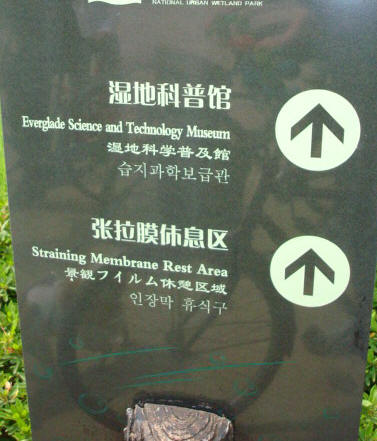
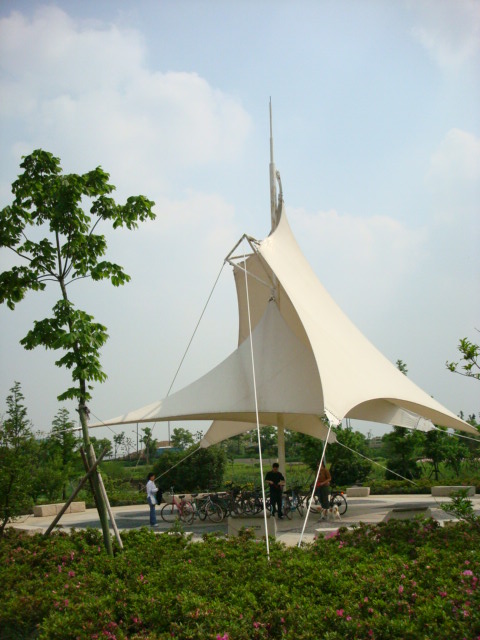
What on earth
is a "Straining Membrane Rest Area"? Oh, of
course.

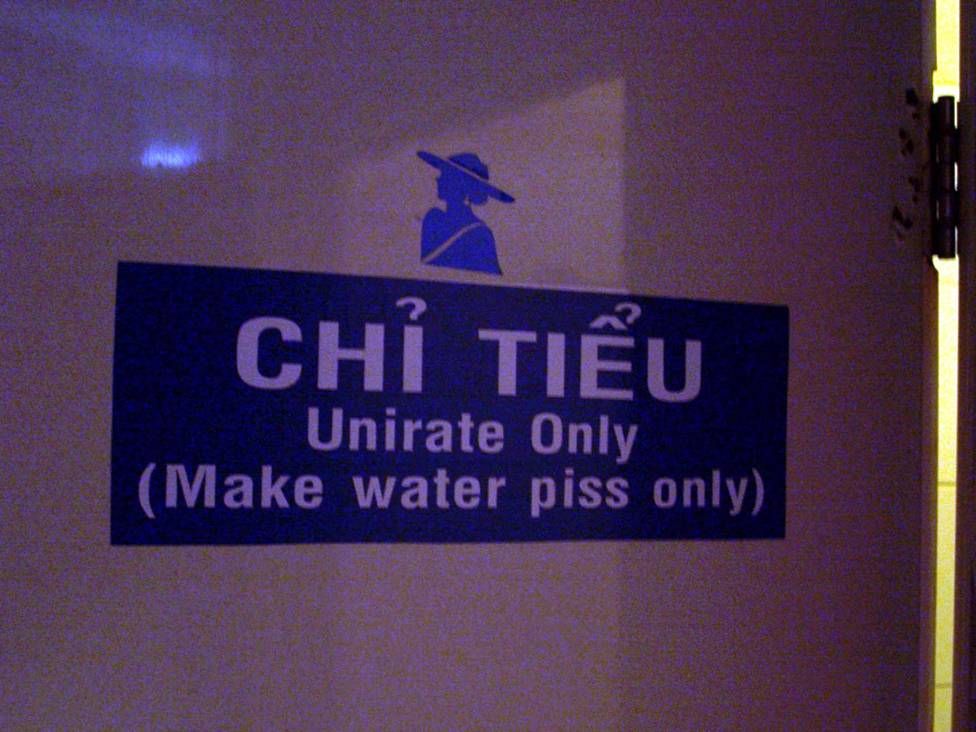
Bad English is
not just a Chinese problem.
This is from Vietnam.
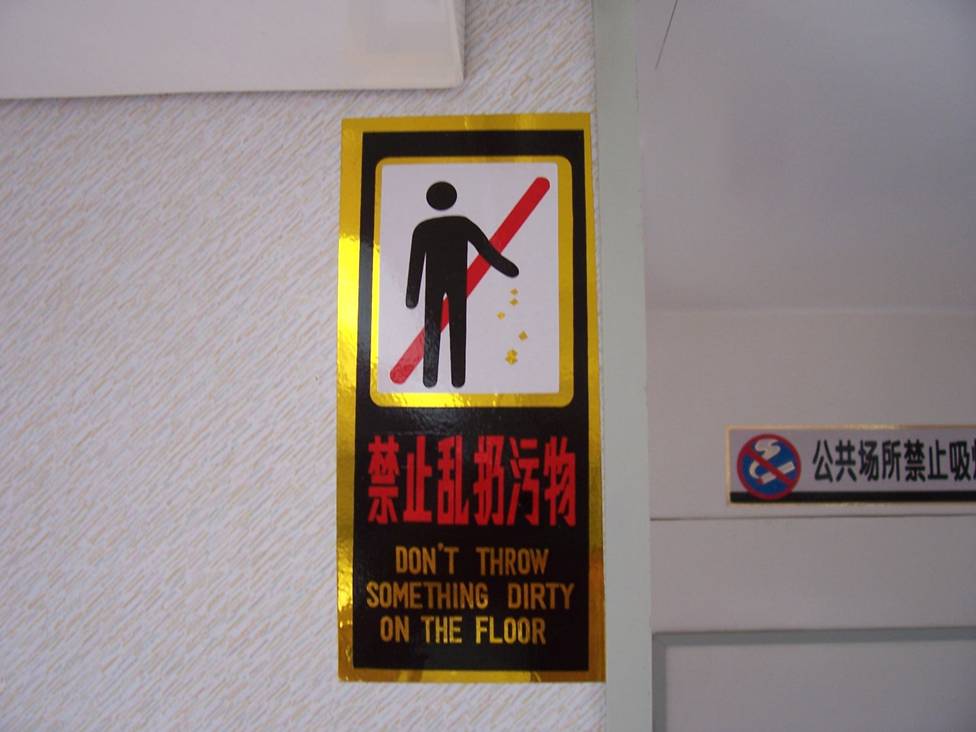
Something clean
is okay?

Well, tell
it like it is I suppose.
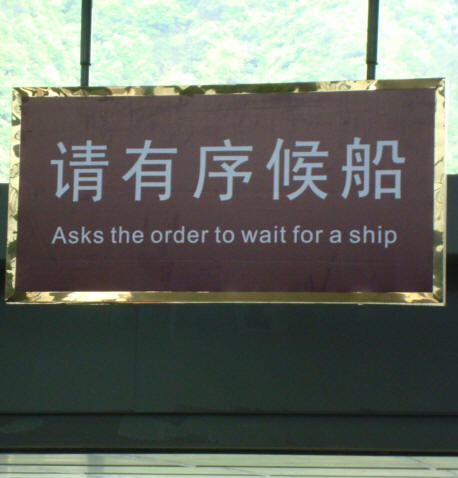
Uh.... huh?
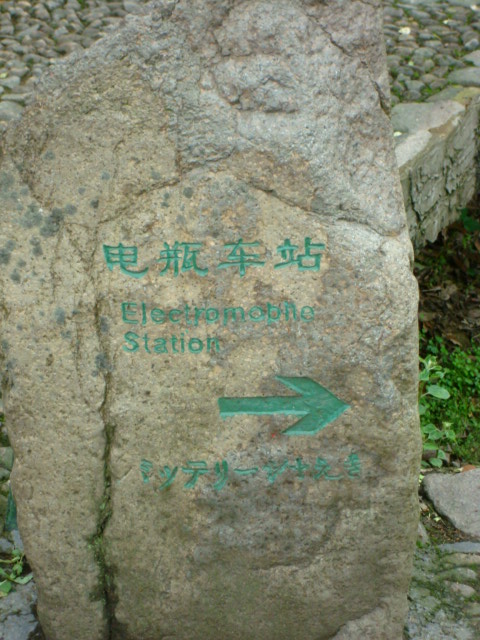
"Electromobile
station" ? Chinglish carved in stone

I've never been told
not to frolic before, but I suppose this is good
advice.
More Chinglish to be Added as I find it
in my Archives
or in China
Comment on this Post
First time comments will not appear until they have been approved.
Your comment will not appear until you have refreshed this page.
The Man in China archive index
The
Incredible Summer of 2010 Wedding and Honeymoon
The Man in China Home





